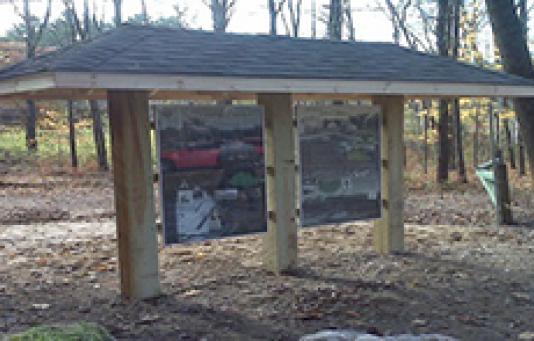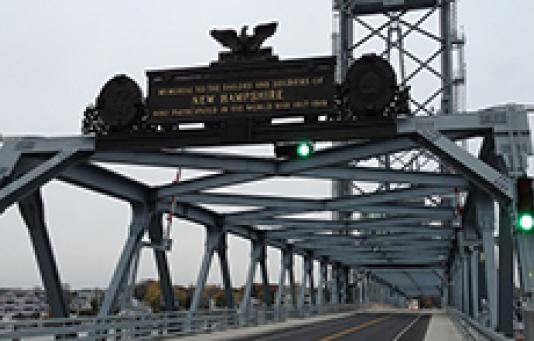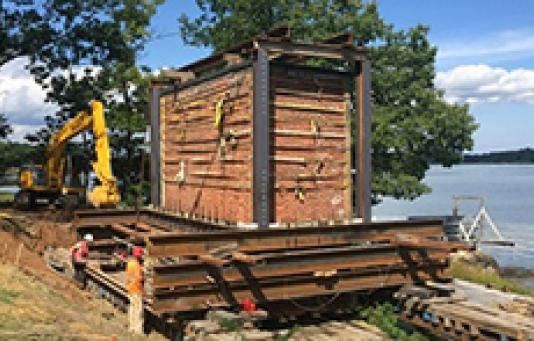Project Review & Compliance
Historic preservation "Review & Compliance" is a consultation process.
The Division of Historical Resources (DHR) is New Hampshire's State Historic Preservation Office (SHPO). As such, the DHR’s Review and Compliance (R&C) team advises and assists federal and state agencies in their responsibility to take into account potential impacts of projects they fund, license, or permit on historical and archaeological resources. This consultation process, under Section 106 of the National Historic Preservation Act of 1966 and/or RSA 227C:9, is intended to be a conflict-resolution and problem-solving system that balances the public interest in historic preservation with the public benefit from a variety of governmental initiatives.

Section 106 of the National Historic Preservation Act of 1966 and RSA 227C:9
With the National Historic Preservation Act of 1966, Congress acted to recognize and preserve the nation’s heritage from unintentional adverse impacts of federal development. One small but critical section, Section 106, established federal agencies as leaders of this effort by requiring consideration of any federally funded, permitted, or licensed project’s effects on historic resources. Similarly, New Hampshire’s RSA 227C:9 provides the opportunity for state agencies and their partners to thoughtfully balance the preservation of the Granite State’s heritage with state-assisted development.

Requests for Project Review
To begin review and consultation with the DHR, project proponents MUST complete and submit a Request for Project Review (RPR) Form. These procedures were created to help streamline the review process and minimize delays caused by incomplete information submitted at the time of the initial review request.

Completing the Section 106 Process
Continue the Section 106 process effectively by following federal regulations, federal agency protocols, and New Hampshire-specific policies, guidance, form and report templates, and submission requirements.
Public Policy
Historic properties that are significant in history, architecture, archaeology, engineering, and culture are recognized by both the state and the federal governments as resources to be preserved and interpreted for the benefit of all citizens. They are non-renewable resources that are important to our individual and collective identity, and they are worthy of protection, investigation, interpretation, and conservation.
This policy does not mean that all properties of sufficient age to be considered "historic" are significant resources, nor does it mean that all significant historic properties can or should be saved. Rather, it is a directive to prevent the needless destruction of our tangible cultural heritage, and a challenge to seek conditions under which significant historical resources can exist in harmony with government-aided social and economic changes.
Review & Compliance FAQs
Statutory Authority
All federally funded, licensed, or permitted projects in New Hampshire are subject to the review requirements of Section 106 of the National Historic Preservation Act of 1966, as amended (54 U.S.C. 306108), implemented by the procedures of the federal Advisory Council on Historic Preservation (ACHP), Protection of Historic Properties (36 CFR Part 800).
Federal agencies or their legal designees are required to take into account the possible impacts of their projects on historical resources, and to submit proposed projects to the Director/State Historic Preservation Officer (SHPO) of the Division of Historical Resources, for a determination of potential effects on properties that are listed, or are eligible for listing, in the National Register of Historic Places.
State agencies, departments, commissions, and institutions are required to submit such undertakings to the SHPO for a determination of whether such proposed actions are located in, or may affect, historical resources. Many New Hampshire state-licensed, assisted, or contracted projects, activities, and programs are subject to the review requirements of a similar state law, RSA 227-C:9, as implemented by state administrative rules.
Technical Assistance Reviews
If a project is conducted entirely with local, private or donated funds, and no federal or state programs are involved, review by the Division of Historical Resources is usually not required. If federal or state funds, permits or licensing become involved later, the project should then be submitted to the Division of Historical Resources for review. However, project sponsors may request a technical assistance review from the DHR (subject to DHR staff workloads and other commitments), to determine whether the proposed work meets The Secretary of the Interior's Standards for the Treatment of Historic Properties, or what would be needed to meet the standards. The DHR can also recommend less costly and damaging alternatives that would otherwise not comply with the standards.Technical assistance reviews may also be provided to inform project proponents on the archaeological sensitivity of proposed project areas.



